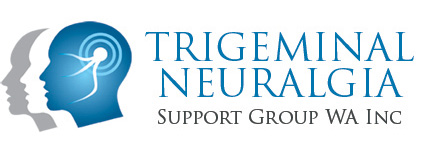Many patients find that TN can be effectively managed with medication. Even though the pain of TN may come and go, it is necessary for a TN patient to take medication regularly to prevent the sudden onset of an attack. Taking medication sporadically is ineffective, and abrupt withdrawal of medications can cause side effects.
Once a patient has been pain free for four to six weeks, the medication may be gradually tapered off but only on your doctor’s advice.
More information on Surgical Options
The Perth Support Group
Books and Documents
Analgesics (such as aspirin and Nurofen)
And narcotics are ineffective against TN because attacks are usually sudden and long term use of narcotics is not advisable.
Anticonvulsant medications which slow down the nerve’s conduction of pain signals are usually the first treatment option for classical TN.
Carbamazepine (Tegretol)
Has been the primary drug used to treat TN. Many neurologists believe that the relief of facial pain with Tegretol confirms the diagnosis of TN. The drug is introduced slowly and increased by the doctor to a level where the patient is pain free or side effects occur. It has been shown in controlled clinical trials to be effective in approximately 60% of patients with TN.
Phenytoin (Dilantin)
Is another drug that is used to treat TN, especially if the patient has had adverse side effects to Tegretol. Since Dilantin may also be administered intravenously, it is sometimes used to stop an acute attack, such as in the emergency room. Dilantin is considered to be less effective in addressing TN, but it may be better tolerated by the elderly patient.
These drugs, which are also used as anticonvulsants, generally are thought to work by blocking the firing mechanism of the nerve. The more common side effects are dizziness, drowsiness, forgetfulness, unsteadiness and nausea. Serious side effects may occur although they are rare. They include anemia, liver toxicity and kidney dysfunction. Patients on Tegretol and Dilantin should have periodic blood counts to monitor any blood abnormalities.
Gabapentin (Neurontin)
Is a more recent anticonvulsant. Since it is eliminated by the body rather than metabolized it is felt to be more easily tolerated and to cause less liver toxicity. Neurontin has also been found to be beneficial in the treatment of some atypical facial pain syndromes and other painful nerve problems.
Baclofen (Lioresal)
Is a muscle relaxant that may be used alone or in combination with other medications. It seems to help increase their effectiveness if additional medication is needed.
Other medications
Other medications used in the treatment of TN may include clonazepan (Rivotril) and sodium valporate (Epilim)
During all phases of medical treatment, patients need to communicate their pain level and / or drug side effects to their neurologist or other health care professional so that medication can be regulated effectively. These medications work best with a consistent blood level, so they must be taken on a regular schedule.
To avoid serious side effects, including seizures, anticonvulsant dosages must be increased and decreased slowly as directed by your doctor. Do not stop these medications abruptly. The drugs tend to work on an all or nothing principle. They do not give partial relief as the dosage is increased; they work when the correct dosage is reached, so dosage must be individualized with each patient
Anticonvulsants can be given in combinations. Neurontin and Baclofen are often given as a second drug along with one of the other anticonvulsants.
Alcohol and other sedatives should be avoided with most of these drugs.
Switching medications may be necessary, so in order to maintain a pain relieving blood level of medication, discuss with your doctor how to begin the new medication while tapering off of the old one.
Long term use of anticonvulsant drugs have been found to deplete bone mass, leading to osteoporosis, so bone density testing and calcium supplements are recommended.
About 80% of TN patients will respond to medications and find their TN symptoms can be effectively managed with drugs; however, 20% will not. Consult your neurologist for complete information regarding medication dosages and specific questions about them.
